MIIF prioritises ESG for sustainable mining
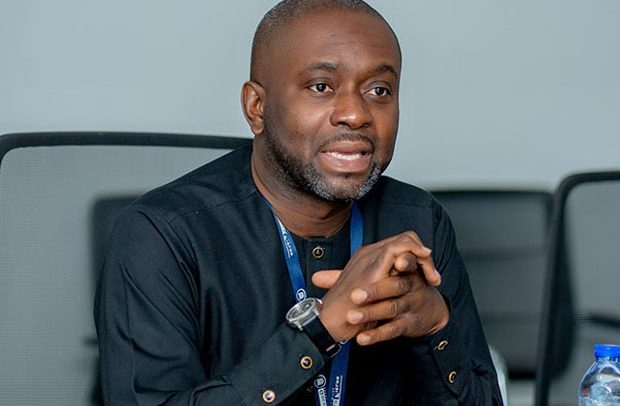 MIIF CEO Edward Nana Yaw Koranteng
MIIF CEO Edward Nana Yaw Koranteng
The Minerals Income Investment Fund (MIIF) has placed Environmental, Social, and Governance (ESG) principles at the core of its investment strategy as it aims to transform the mining sector into the first pillar of the economy while ensuring long-term environmental sustainability.
Edward Nana Yaw Koranteng, Chief Executive of MIIF, outlined the fund’s commitment to ESG in a recent interview with the B&FT: “For MIIF, our investments, especially in mining, have a direct impact on the environment. This makes it crucial for us to have ESG as the pivot on which all our investments rest.”
Menace to society
The emphasis on ESG comes at a critical time for Ghana’s mining industry.
The sector, particularly illegal small-scale mining, also known as ‘galamsey’, has been under scrutiny for its environmental impact, including the destruction of cocoa farms and pollution of water bodies.
The Ghana Cocoa Board (Cocobod) reports a 20 per cent reduction in cocoa production over the past five years, primarily attributed to illegal mining activities.
This has resulted in a significant economic loss for the nation, estimated to be approximately US$2.3 billion annually.
Furthermore, the Forestry Commission has documented a loss of more than 2.5 million hectares of forest cover due to galamsey.
On August 31, 2024, the Ghana Water Company Limited in the Central Region blamed galamsey for recent water supply challenges in Cape Coast, Elmina, and surrounding communities. Additionally, on September 2, 2024, the company announced that it might have to close two major treatment plants in the Ashanti Region due to high turbidity levels, which have increased production costs.
Head-on
MIIF’s strategy aims to address these concerns head-on, recognising that the future of mining in Ghana depends on sustainable practices. “If we want to invest in mining and make it the cornerstone of our economy, why would we invest and lose our ability to provide food, protect the environment, and safeguard our water bodies?” Mr. Koranteng questioned, stressing the interconnectedness of mining and environmental health.
MIIF, according to its CEO, is not merely paying lip service to environmental, social, and governance (ESG) principles. Instead, the organisation is actively implementing concrete policies that reflect its commitment to sustainability.
Every investment and programme undertaken by MIIF is evaluated through an ESG lens.
This ensures that environmental considerations are a central part of all decision-making processes.
One such initiative is the Small-Scale Mining Incubation Programme, designed to formalize a sector that contributes significantly to Ghana’s economy.
By focusing on traceability, environmental governance, and ESG principles, this programme aims to improve the sustainability of legitimate small-scale mining operations.
MIIF’s approach to ESG aligns closely with government policies on mining sustainability, Mr. Koranteng added. This includes strict regulations for decommissioning mining sites and environmental bonding.
Additionally, the organisation is actively involved in supporting scientific attempts to clear the silted rivers as a result of illegal mining, advocacy and education efforts. “By promoting environmental awareness and understanding across various sectors of society, MIIF is working to build a broader consensus on the importance of sustainable mining practices,” he added.
The focus on ESG is not without its challenges. Some industry observers have argued that the battle for environmental sustainability in mining is an uphill one.
However, Mr. Koranteng remains optimistic. “We have seen a critical mass of environmental advocates in Ghana now,” he noted. “So far as we have that growing, we have the advocacy, we have the influencers coming in, we have government policy support, we have companies like MIIF making sure its support to mining companies is premised on environmental sustainability. We will be able to shift.”
The impact of MIIF’s ESG-focused strategy extends beyond the mining sector. By prioritizing environmental protection alongside economic growth, MIIF is contributing to broader national goals of sustainable development and climate resilience, its CEO argued. The approach also aligns with global trends in responsible investing, potentially making Ghana’s mining sector more attractive to international investors who prioritise ESG considerations.
Koranteng emphasised that the success of this strategy will require a collective effort. “We need grit to be able to go through, but we need to have an emotional understanding of the impact of environmental degradation,” he stated.
He called for broader engagement, suggesting that environmental sustainability summits should include students, universities, and primary schools to create a new generation of environmental advocates.
As Ghana positions itself to leverage its mineral wealth for economic development, MIIF’s ESG-centric approach could prove to be a crucial differentiator.
By balancing the pursuit of mineral income with stringent environmental and social standards, Ghana has the opportunity to set a new benchmark for sustainable resource management in Africa.
Mr. Koranteng concluded with a message that encapsulates MIIF’s philosophy: “Our environment is our life. We make it analogous to degrading the environment to reducing our lifespan. When the last tree dies, the last man dies.”
Trending Business

SIC Managing Director James Agvenim-Boateng honoured by IBAG
05:34
IMF technical mission engages Ghana on implementing governance reforms
05:08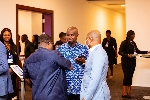
NPA hosts 2025 Downstream CEOs breakfast meeting to shape industry’s future
15:16
Ghana to establish Trade House in the UK to boost exports — High Commissioner reveals
15:05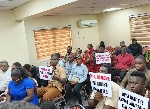
VEMAG raises concerns over DVLA's digital number plate rollout, citing job losses
13:30
DVLA introduces temporary registration number sticker for non-fleet vehicle owners
12:05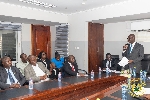
Finance Minister urges Legon Tax Office to strengthen revenue mobilisation
10:12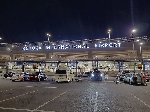
GRA refutes extortion claims, clarifies duty payment incident at Kotoka International Airport
06:39
NYA CEO urges Yango couriers to be diligent and humble at 2025 Partner Conference
14:26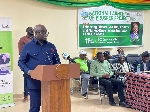
Agric Minister launches $147.3 m PROSPER project in Damongo to transform rural agriculture
14:15




